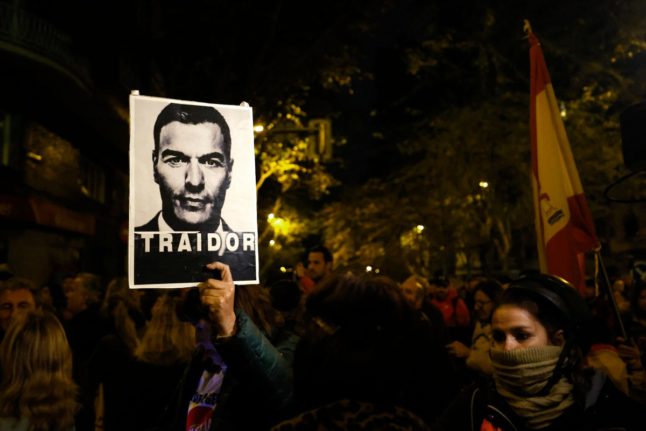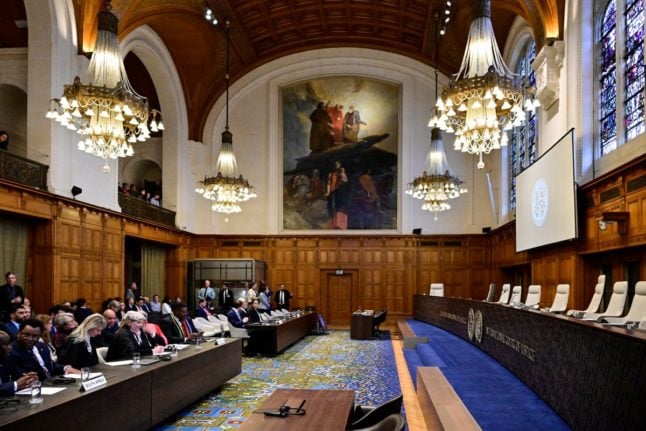In exchange for providing the votes needed to form a new government, Sánchez agreed to Catalan separatist Carles Puigdemont’s demands that hundreds of separatists pursued by Spanish prosecutors for their role in a failed 2017 declaration of independence be amnestied.
Any amnesty talk is controversial in Spain, seen as an assault on the rule of law after the secession attempt set off the worst political crisis in modern Spanish history.
READ ALSO: Spain’s amnesty dilemma: the ‘end of democracy’ or logical next step?
“We appeal to all outraged citizens, to all Spaniards who will not give up, to all those that want to raise their voices,” Friday said Cuca Gamarra, the number two of the center-right Popular Party (PP), which has called for protest rallies across the country to intensify this weekend.
Sánchez’ decision is already reflected in opinion polls. According to the latest survey by the CIS institute released Friday, support for the Socialist Party (PSOE) has already dropped 1.3 percentage points in a month, falling to 31.3 percent, while the PP gained 1.7 points to 33.9 percent.
Right and far-right in the streets
The PP and its allies finished first in July’s legislative elections but was not able to form a workable majority in parliament. The PSOE finished second, but after PP leader Alberto Núñez Feijóo failed to cobble together a majority, the mandate was given to Sanchez and he succeded only at the cost of winning over Puigdemont.
In response, the PP has sought to mobilise public opinion against the amnesty law, organising rallies in all the main cities in the country.
READ ALSO: IN IMAGES: Second night of far-right protests against Spain’s amnesty
The far-right nationalist Vox party has gone even further in its rhetoric, calling for “resistance” against the state. “We have the duty to resist a government and a tyrant that will be sworn in thanks to enemies of Spain,” Santiago Abascal, the party’s head, said Thursday during a demontration in front of PSOE headquarters in Madrid.
The demonstrations, held every evening for a week, have started to degenerate with 24 arrests Thursday, according to police.
Opposition is rising in the ranks of the judiciary, and not just among conservative judges. In a statement, the main magistrates’ associations, representing all political stripes, said Sánchez’ accords with Puigdemont represent a “rupture in the separation of powers” and an “unacceptable disrespect for the role of the legal system.”
Puigdemont, an unpredictable ally
The amnesty plan is controversial even within the PSOE. Puigdemont, who fled to Belgium after the failed secession to avoid prosecution, “is guilty and is not a victim,” said Emiliano Garcia-Page, Socialist president of the Castilla-La Mancha region. “The judges just applied the law.”
Beyond the current tensions, another challenge for Sánchez will be the reliability of Puigdemont, who for years has strongly opposed Spain’s leftist governments.
“The dance now begins,” said the political scientist Oriol Bartomeus, who says the government’s stability will matter little to Puigdemont, whose priority is appearing more independent and instransigent in the eyes of his Catalan base than his separatist rivals.
“It is a risk but Sánchez has shown he likes risk.”



 Please whitelist us to continue reading.
Please whitelist us to continue reading.
Member comments